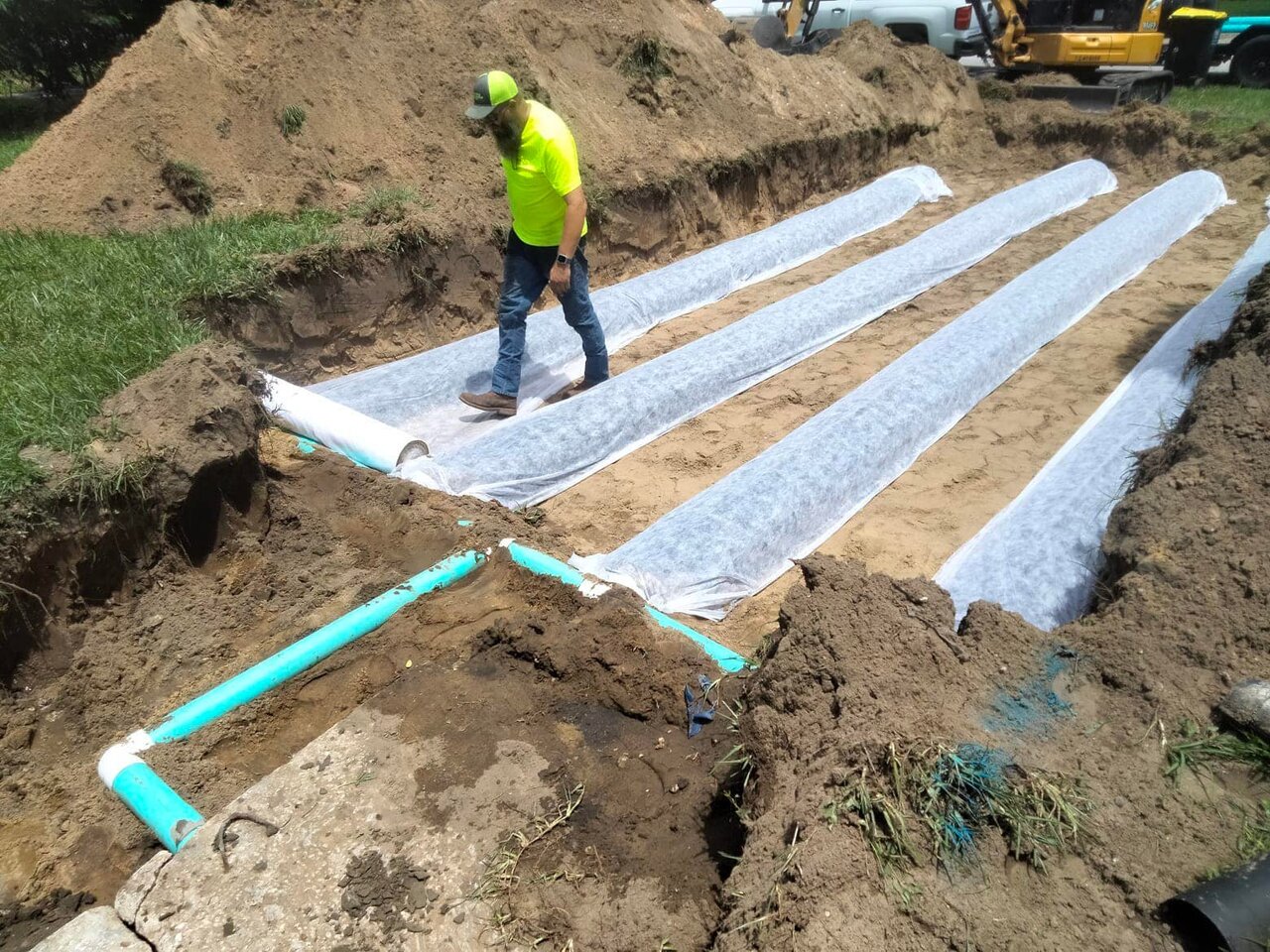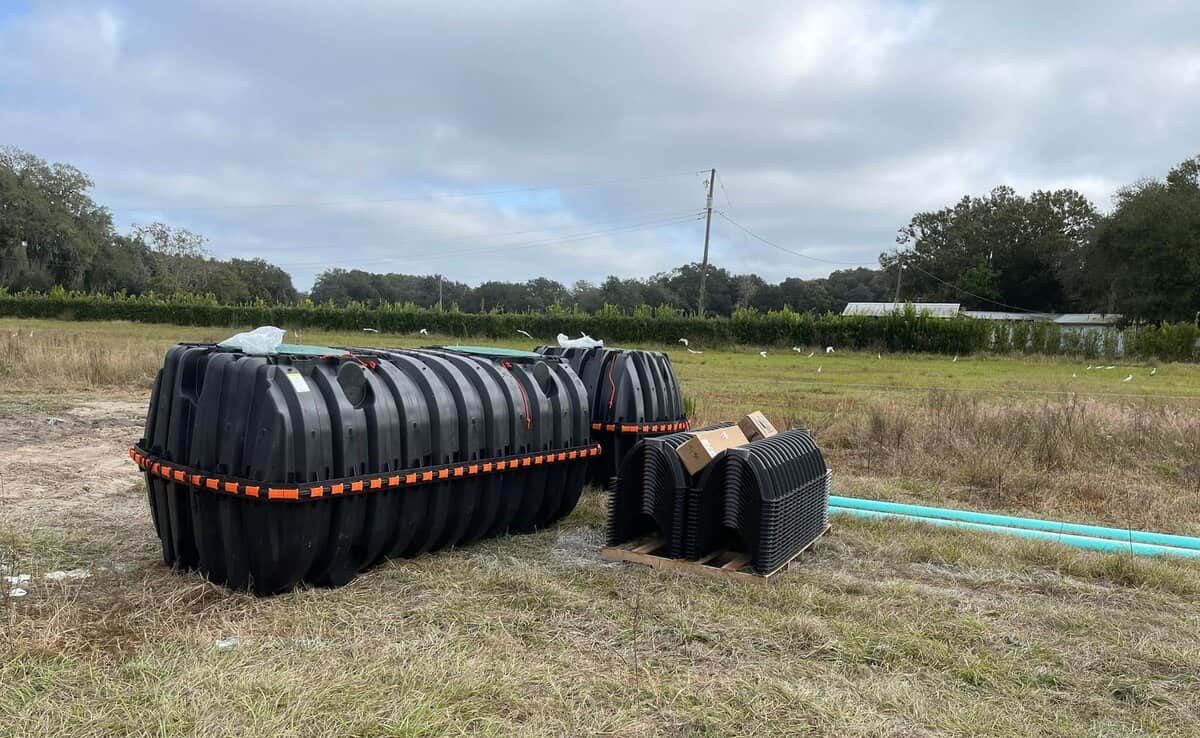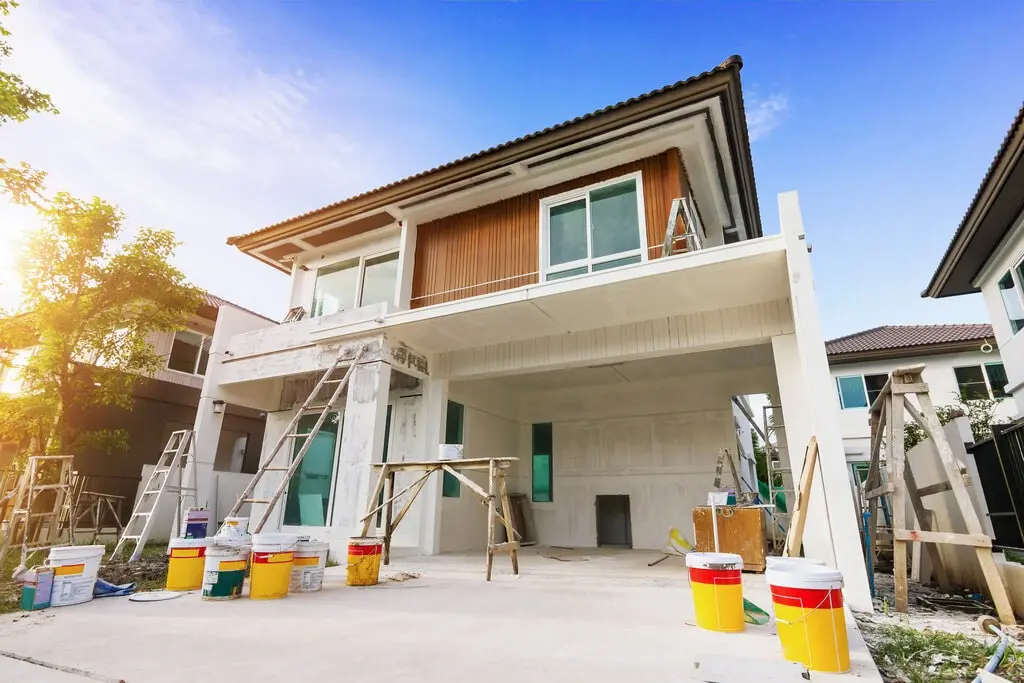For homes with septic systems that are located in areas that receive a lot of rain each year or that experience occasional heavy rains, homeowners need to be aware of the potential for rain-related problems. Heavy rain and septic tanks can be a problematic combination, so homeowners are wise to understand the potential issues and prepare in advance as much as possible.
What Causes Septic Problems After Heavy Rain?
The primary culprit of septic backup from rain is an oversaturated drainfield. The drain field typically functions by allowing effluent to filter out through the sand and soil, which removes any remaining toxins before the water re-enters the atmosphere.
This process can be interrupted, however, if the soil in the drainfield is too wet to be able to absorb and process any more water. Heavy rains can saturate the drainfield, which prevents effluent from entering into this final step in the wastewater treatment process. The effluent will remain trapped in the septic tank, and this can ultimately lead to the tank becoming too full and wastewater backing up into the home.
This problem can be compounded if the drainfield is not functioning at full capacity before the rain even begins. Common causes of drainfield issues include:
- Clogging. Fats, oils, and grease (FOG) that get flushed into the septic system can eventually find their way into the pipes of the drainfield. Because the FOG won’t be absorbed into the surrounding soil, this can lead to full clogs or partial clogs that cause the absorption to slow down.
- Soil Compaction. Driving, parking, or building structures on drainfields can cause the soil to become compacted. Hard-packed soil is less able to absorb liquid, which can hinder the ability of the septic system to function properly.
- Trees or Other Vegetation. Tree roots and other vegetation are attracted to water, so they naturally grow toward a drainfield. However, roots can easily disrupt the functioning of the drainfield by clogging or damaging pipes.
Preparing Your Septic System for Rainfall
Heavy rains can put a lot of strain on your septic system. If your septic tank gets too full, it can lead to septic backup and serious problems. Here are some things you can do to prepare your septic tank for rainfall.
Regular Septic Inspections
Have your entire system inspected regularly by professional septic inspectors. Because all components of a septic system must work together properly, it is important to be proactive and address any issues before they become a more challenging – and more costly – problem. An inspection done before rainy weather can ensure that things continue to function smoothly.
Ensure Proper Sizing
Septic tanks come in different sizes, so make sure that yours is the right size. This means that it is appropriate for the square footage of your home, the number of occupants, and the amount of usage it receives. A larger tank can handle more water and will be less likely to overflow during heavy rains. If you are not sure if your system is the proper size, contact a septic installation company to do an evaluation.
Septic Tank Pumping

Your septic tank is the holding station for wastewater between the home and the drainfield. In the septic tank, bacteria help break down toxins before the liquid effluent makes its way to the leach field. Septic tank pumping is the process of removing effluent (wastewater) from a septic tank. This will help keep it from getting too full and reduce the risk of septic backup that can occur if the drainfield becomes too wet to filter any more liquid.
Septic Tank Cleaning
Cleaning your septic tank may be accomplished at a more comprehensive level, beyond simply pumping. A septic tank company can use pressurized water and other procedures to eliminate accumulated waste from your septic tank. Breaking down this compacted sludge might help prevent clogs and improve drainage speeds.
Redirect Water Away from Drainfield
If rainwater from gutters or downspouts is being directed into or toward the drainfield, find a way to redirect it elsewhere. Since the drainfield may already become overly wet from rainfall, adding more water from the roof will exacerbate the potential for oversaturation.
Limit Water Usage
All of the wastewater from your home flows through the septic system, eventually making its way to the drainfield. While you cannot control Mother Nature, one simple way to minimize the possibility of drain field oversaturation is to limit how much man-made water needs to be processed. You can do this by conserving water before and during periods of heavy rainfall:
- Take short (or no) showers
- Use low-flow toilets, and high efficiency shower heads and faucets
- Minimize the amount of laundry being done
- Repair any leaking or dripping faucets or toilets

Signs of Drainfield Problems
Since the drainfield is the most significant point of concern for your septic system during heavy rainfall, it is important to know the signs that there might be a problem:
- Slowing drainage from sinks, tubs, and toilets may become apparent over time. This can be a sign of drainfield problems, but could also be a result of clogs in the outlet pipes or other septic problems.
- Puddles or pools of water on or near the drainfield might be caused by cracked drainfield pipes that release too much effluent.
- Lush vegetation can result from a drainfield that is not functioning properly.
- Foul odors suggest that you may need drainfield or septic tank maintenance, since a properly functioning system should be virtually odorless.
If you notice any of these issues, you should contact a septic professional to assess the situation and make any necessary repairs.
Lakeland 24 Hour Septic Service
Septic and Drainfield Depot is the choice for professional septic services throughout Central Florida. Our experienced technicians and commitment to our customers, combined with transparent pricing and free estimates, mean that you can rest comfortable knowing that your septic issues will be addressed correctly on the first try.
From full septic replacement services to septic tank inspections, pumping, or cleaning, we are here to serve your needs.







